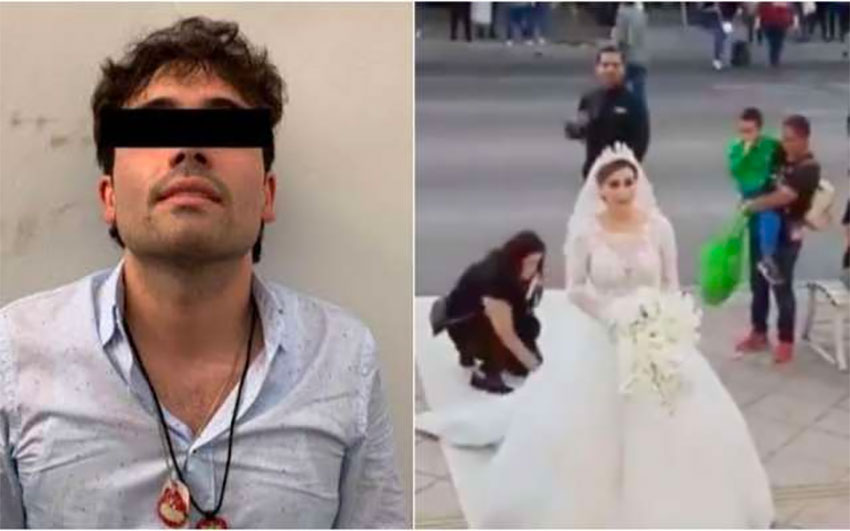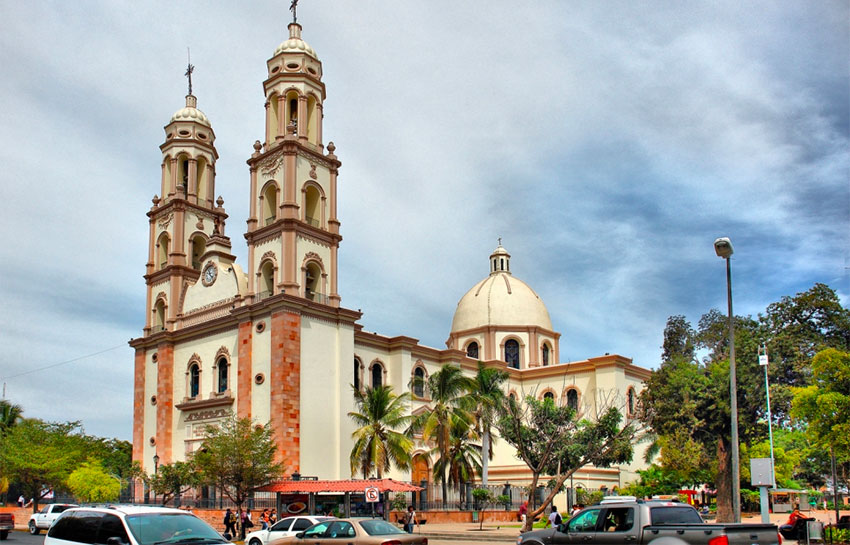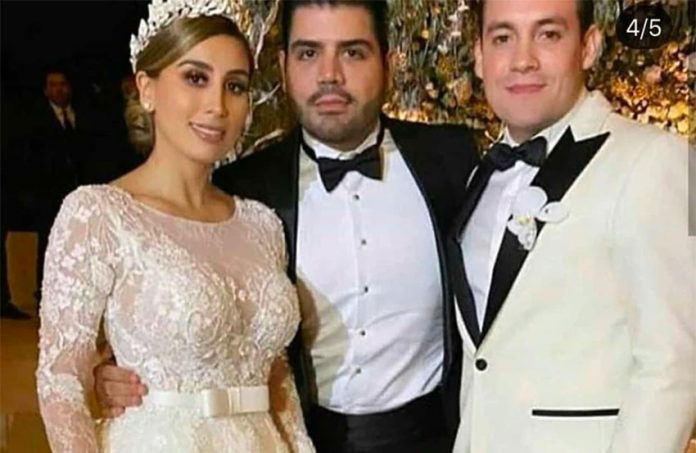The daughter of convicted drug trafficker Joaquín “El Chapo” Guzmán married the nephew of a prominent cartel figure in a lavish ceremony behind closed doors at the cathedral in Culiacán, Sinaloa, late last month.
The newspaper Reforma reported that Alejandrina Gisselle Guzmán Salazar, El Chapo’s eldest daughter, wed Édgar Cázares on January 25 at a ceremony attended by relatives and members of the Sinaloa Cartel.
Cázares’ aunt is Blanca Margarita Cázares Salazar, suspected financial operator for Sinaloa Cartel leader Ismael “El Mayo” Zambada. Known as the “narco’s empress,” Cázares Salazar was sanctioned by the United States treasury in 2007 for her “sophisticated money laundering apparatus” and links to Zambada and another cartel figure.
Wedding guests arrived at the cathedral, which was cordoned off with yellow tape, in armored SUVs and luxury vehicles, Reforma said. Armed men guarded the church as the nuptials took place.
The bride’s half-brother, Ovidio Guzmán López, who was arrested in Culiacán in October but promptly released after cartel gunmen responded to his capture with a wave of attacks, was among those reportedly in attendance.

A priest close to the families of both Guzmán Salazar and Cázares conducted the ceremony, Reforma said. The bishop of Culiacán, Jonás Guerrero, reportedly approved the cathedral’s lockdown for the service.
One video posted to social media shows El Chapo’s daughter dancing with her new husband to live music at a reception held at a Culiacán venue called Álamo Grande. Another shows Guzmán Salazar dancing with her mother, Alejandrina Salazar Hernández, who was Guzmán’s first wife.
The well-known norteño band Calibre 50 and the Grammy-nominated singer Julión Álvarez provided the soundtrack for the festivities.
Guzmán Salazar, 38, is a businesswoman and holder of the rights to the brand name “El Chapo,” which is used to sell clothing and footwear. She recently announced plans to sell beer using Guzmán’s nickname, which means “shorty.”
Cázares allegedly has his own links to the Sinaloa cartel, including “El Mayo” Zambada, who runs the organization along with Guzmán’s sons.
News of the couple’s wedding at the cordoned-off Culiacán cathedral triggered criticism from both ordinary Mexicans, including local residents, and federal lawmakers.

“The church is for everyone,” a woman identified only as Sofía told the news agency Reuters. “. . . [It] shouldn’t give privileges to anyone.”
Another woman, Francisca, told Reuters that “with money, you can close any building” in Culiacán. “It’s unfair,” she added.
Verónica Juárez, leader of the Democratic Revolution Party in the lower house of Congress, said that the closed-door ceremony was evidence of the protection and impunity organized crime enjoys in some parts of Mexico.
Authorities were aware of what was happening at the Culiacán cathedral on January 25 and “should have acted,” given that armed men were in the area, she said.
The leader of the ruling Morena party in the Chamber of Deputies said that the wedding was indicative of the “power” of organized crime.
“. . .I believe that it shouldn’t have happened,” Mario Delgado said, adding that an investigation should look at why it was allowed to take place.
Gerardo Fernández Noroña, a deputy with the Labor Party, a coalition partner of Morena, said that Sinaloa has been a “lifelong” seat of “narco-power” and that things need to change.
Even though it was widely criticized for releasing Ovidio Guzmán, the lawmaker said that there is a willingness within the government to “break up” the power held by Mexico’s notorious cartels. However, he predicted that pacifying the country will take five years.
Analysts also weighed in on the wedding between Guzmán and Cázares.
“It is a reminder of how deeply embedded and powerful the Guzmán family remains in Sinaloa’s society. They are effectively part of the elite,” Falko Ernst, senior Mexico analyst for the International Crisis Group, told the newspaper The Guardian.
Rodolfo Soriano-Nuñez, a sociologist who studies the Mexican catholic church, told The Guardian that the church has had a relationship with criminal groups for about 30 years.
“Locking down the cathedral and pretty much giving it away” looks very bad “and forces one to raise all sorts of questions regarding the decision-making process.”
